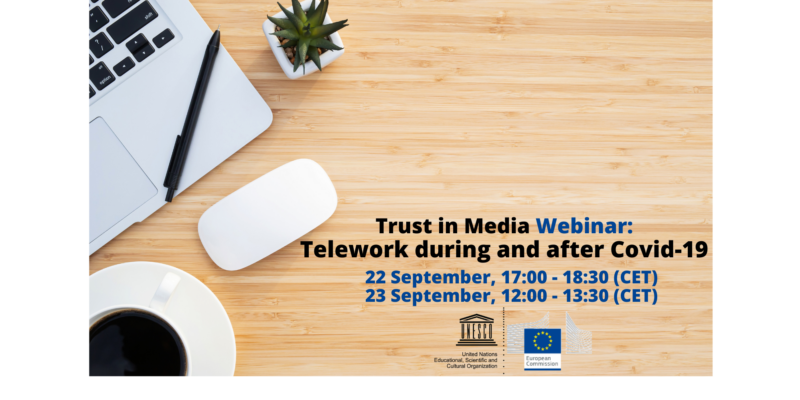With the proliferation of the so-called “fake news”, rebuilding trust and ensuring quality in journalism are becoming ever more important to fight against disinformation. How can journalists and media reach a diverse audience and provide trustworthy information to citizens to participate in the democratic processes and make informed choices?
Meanwhile, the question of finding sustainable financing for journalism remains as a challenge. Today, journalists are working in an increasingly precarious condition – more workloads, longer hours and more demands on multiple skills. Without decent working conditions and sustainable financing models, quality journalism can barely thrive.
The new project, Trust and quality in journalism, with key social partners European Broadcasting Union (EBU) and the European Newspaper Publishers’ Association (ENPA), aims to find innovative ways for latest training needs and cooperation to address all these key issues.
The main objectives of the project are to promote best practices, exchange ideas on key issues that influence the main topic of the project through five workshops and a final conference. It also aims to engage in social dialogue with national and European partners.
Five thematic capacity-building workshops focusing on:
-
- New EU Copyright Directive: How to get a fair share for journalists? (planned: Belgium, but online), March 2020
- Freelancers: Equal Treatment for All (planned: France, but online), October 2020
- Audience engagement and artificial intelligence (planned: Finland, but online), March 2021
- Trends, skills and training in journalism (planned: Germany, but online), June 2021
- Photojournalism in the digital age (planned: Montenegro, but online), October 2021
A final conference with a focus on Gender equality and diversity, building upon EFJ adopted Gender Manifesto with a focus on violence against women (Malaga, Spain), March 2022.
Expert Exchange Visits: personal and intensive coaching from a one-on-one, hands-on approach to deal with specific issues and develop tailor-made strategies.
Studies: an updated study on digital journalism and new financial models; a manual for the Copyright national implementation work; and a case study on how long journalists stay in their profession.












